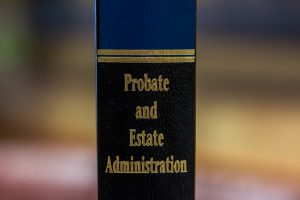Probating wills is time-consuming and a public affair; however, there are steps you can take now to avoid these situations for your heirs at your time of death. Yes, there are times when the complexity of the financial situation for an individual requires one to execute a will to be properly vetted and probated. But that’s not always the case.

This can save untold stress – emotional and financial – on your loved ones while they grieve. Having to worry about sorting out assets and paying inheritance taxes, among other fees can be reduced.
Of course, the quickest and most extreme way to avoid probating your estate is to sell or otherwise get rid of all property in your name. Without any assets, there is nothing to probate. But let’s be real. This isn’t really practical in most cases. You need cash to live on until you die. You can also use a revocable living trust that covers you now (while you’re presumably alive and well), if you should become mentally incapacitated, and finally after your death. This isn’t as easy as it sounds either. All your assets need to be transferred into the name of the trust fund. You would then name beneficiaries to own the trust upon your death.
Another possibility is to use joint ownership with rights of survivorship. Basically, you’re adding a joint owner to a bank account or retirement fund, and registering it transfer on death (TOD). There are limitations to how effective a joint ownership can be in your circumstances. For example, Pennsylvania law does not permit TOD for real estate or vehicles.
You can also use beneficiary designations on common assets like life insurance or retirement funds. This is probably one of the easiest ways to avoid probate. When you sign up for the account, simply designate a beneficiary at the same time (make sure to revisit these designations from time to time to ensure they’re still accurate!).
While there are multiple ways to reduce the impact of estate taxes, only a tax attorney can help determine the best options for you. With more than 35 years of experience helping families minimize taxes and fees associated with collecting inheritances, we can help! Contact our office at 724-216-5180 or use our online form for more information.

No comment yet, add your voice below!